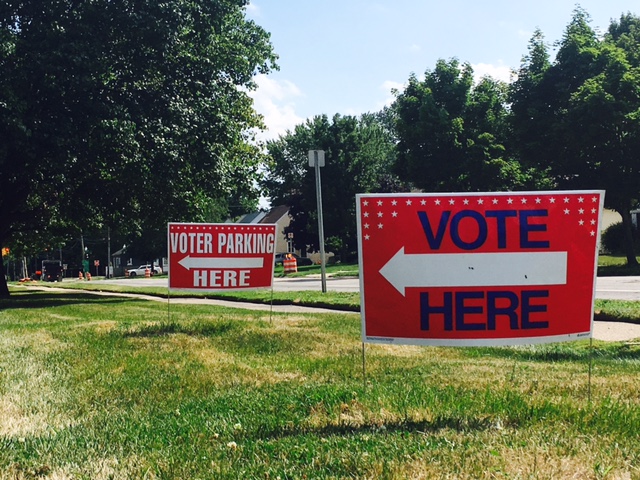Schuette Must Decide Whether To Take Voting Case To SCOTUS [UPDATE]
Lowers courts held Michigan’s straight-ticket voting ban violates the rights of minority voters in large cities.


UPDATE: Michigan Attorney General Bill Schuette has filed an emergency appeal with the U.S. Supreme Court.
A legal drama over Michigan’s November election ballot could land next on the steps of the United States Supreme Court.
A federal appeals court has denied Michigan Attorney General Bill Schuette’s request for a review of the straight-ticket voting controversy.
Republicans in the Legislature adopted a bill signed into law by Gov. Rick Snyder earlier this year law that banned the practice of allowing voters to support a political party’s entire slate of candidates with a single mark on the ballot.
A lower courts held the law probably violates the rights of minority voters in large cities who are most likely to use the option.
That decision was supported by a three-judge panel on the U.S. Sixth Circuit Court of Appeals. Schuette asked for a review by the entire court. But most of the judges on the appeals court agreed to maintain the status quo in Michigan since 1891.
From the majority opinion supporting the decision written by Judge Karen Nelson Moore:
“…The preliminary injunction keeps in place the law of Michigan for the past 125 years allowing straight-party voting. On two prior occasions (in 1964 and 2001), the people of Michigan rejected by referendum the efforts of the legislature to eliminate this practice begun in 1891.”
The opinion also notes that, under the Michigan Constitution, the newest straight-ticket voting ban can’t be challenged by a voter referendum because it has a $5 million appropriation attached to it.
But some judges serving on the U.S. Sixth Circuit Court of Appeals said they would have preferred the case to be heard by the entire court.
Judge Danny Boggs said the court should not be meddling in how the state handles elections. From his dissent:
“If the state were to permit straight-ticket voting in majority areas but not in minority areas, that would potentially be a serious violation. But that is not what occurs in Michigan.”
Boggs acknowledged there is a narrow legal path for the state to take its case to the U.S. Supreme Court, but seemed to invite the attempt.
Schuette will have to decide quickly whether to file the appeal. The deadline to finalize Michigan’s ballot is a week away.
